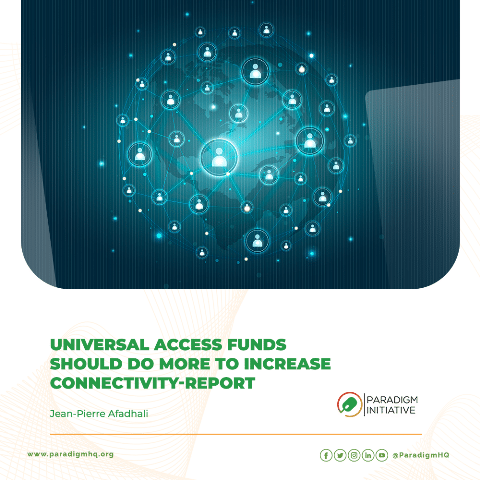Universal Service and Access Funds (USAFs) could act as catalysts for action to drive down the price of internet access, expand coverage to the millions that remain unconnected, and build the inclusive foundation for a robust digital economy, suggests the Affordability Report 2021 released recently by ‘Alliance of Affordable Internet’, a global coalition working to make broadband affordable for all.
According to the International Telecommunication Union, USAFs address, the potential for a market failure where private interests’ profit motives cannot be reasonably sustained against the cost basis of providing access while ensuring telecommunications services are accessible to the widest number of people.
“This report challenges us to think about what Universal Service & Access Funds have achieved in the past decades but to not limit our thinking to just what they have done,” said Sonia Jorge, The Executive Director of Alliance for Affordable Internet (A4AI) in a note about the latest affordability report “There is much more they could do. There is much more we must do to connect the world.”
USAFs are used to bridge the digital gaps notably in Africa in areas where telecom operators are not active to boost access to connectivity and the use of digital technologies.
While policymakers around the world are rooting for digital economies to grow in post-Covid19 resilience, the high cost of the Internet remains a challenge, especially in developing countries including many in Africa.
“Through and post-Covid19, political leaders have invoked digital technologies and the digital economy more broadly as a driver for further expansion and growth. And yet, the foundational issue of individual access to the internet remains a key political issue,” noted the Affordability Report 2021.
Inequality remains a challenge and rural women are the most excluded group in digital economies around the world, according to the study.
Report authors warn that if policymakers “cannot make the necessary investments in universal access estimated to be $428 billion for universal 4G mobile broadband access then the consequent economic ambitions will never be realized.”
The affordably report 2021 ranks countries every year based on the ‘Affordability Driver Index’ (ADI), a combination of policy assessments and market factors that correlate with more affordable Internet for consumers.
The ADI is a tool that was developed by A4Ai to assess how well a country’s policy, regulatory and overall supply-side environment is working to lower industry costs leading to more affordable broadband.
However, the ADI does not measure actual broadband prices, nor does it tell how affordable broadband is in a given country. Instead, It scores the countries across two main policies namely infrastructures and access.
High ADI scores correlate with reduced broadband costs on both the industry side and for consumers. The only African country that ranked among the top 10 most affordable Internet on the index is Morocco with 73.31 while on the top 10 in the Least Developed Countries Senegal tops the Index with 63.85, followed by Benin that is third with 61.20, Uganda 60.46, Rwanda 58.03, Tanzania 55.55 and the Gambia with 52.33.
According to the Internet affordability Index, key risers from last year’s index include Sierra Leone and Liberia, which saw improvement in 3G network coverage.
Countries with the higher scores on the Index have some of the lowest costs of connectivity. As measured by the cost of 1GB MOBILE broadband. Countries with the lowest scores have a wide variance in their affordability with some of the direst cases exceeding 12 % of the average monthly income.
Meanwhile ‘’Opera’, the global web service provider that offers its users a data-light browser noted that 800 million in Africa don’t have access to the Internet and 1GB costs 16 % of monthly income in some parts of the continent. According to Statista, a global provider of markets and consumer data, Internet penetration in Africa as of 2020 was 43 % compared to the global average of 64.2 % as of December 2020. The major constraint to the access is prohibitive costs of data on the continent, Opera said in a statement.
“For some African families, data takes up a significant share of household income, with 1 GB costing up to 16% of a monthly salary in some areas., Opera said in a statement.
Modernise USAF
The A4AI report recommends governments modernise the USAF mandate to build inclusive, strong digital economies. “USAFs offer the pre-existing infrastructure to pursue a mission for universal internet access. However, governments must enable these institutions to evolve with the growing impact of the ICT sector with timely policies, adequate resources, and a mandate to build a coalition of actors across the sector.” noted the report
The affordability report concludes that governments should focus on building strengths in institutional capacity, greater transparency, and wide sectoral involvement to transition USAFs from their limited role today to leaders in the field.
Innovation
“Adopt a universal access strategy with a modern, ambitious USAF mandate that includes institutional coordination in policy design and implementation stages, commit adequate resources financial, political, and human to the USAF to deliver on its mandate, open USAFs with transparency and wide stakeholdership, and build a coalition of actors for universal internet access.” Read other recommendations to improve the crucial finds that contribute to reducing connectivity gaps.
The study authors hope there is still time to act and meet the international goals set for universal, affordable access to the internet by 2030. However, they say these goals will not be met without radical thinking and new approaches that move legacy institutions from their ways of working at inception to new strategies for a new era of digital technologies.
By Jean-Pierre Afadhali | Digital Rights and Inclusion Fellow | Paradigm Initiative


